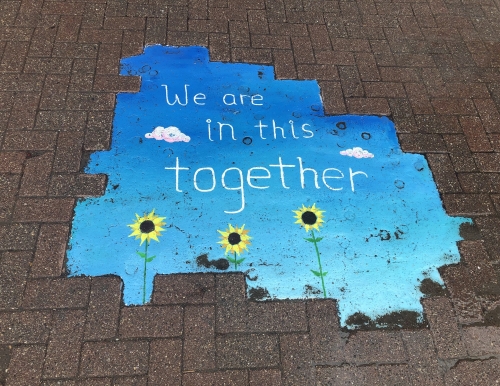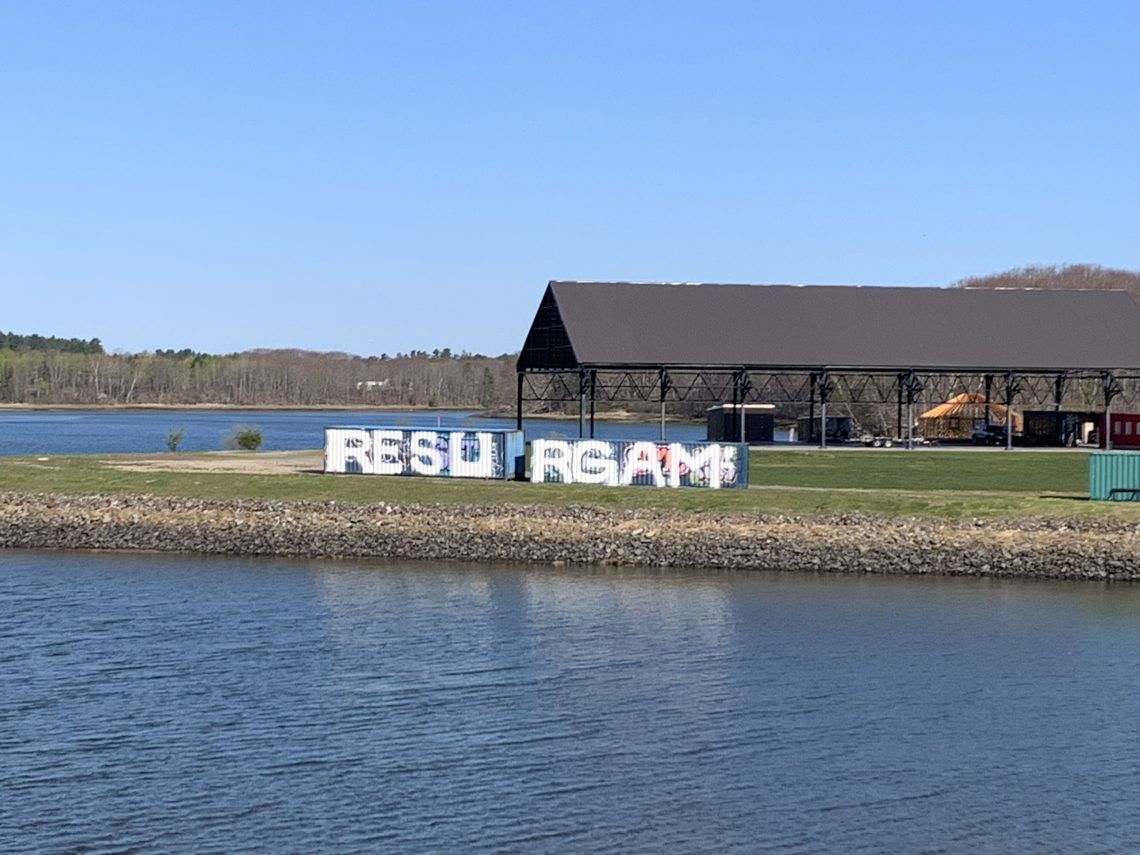
Some of the fleeting Maine images of COVID-19 — of light-up marquees, lawn signs and storefront warnings — are being collected in an online archive by the University of Southern Maine.
The crowd-sourced archive, titled “Signs of the Times: Documenting Covid-19 Signs in Southern Maine,” currently consists of about 200 photos. But creator Libby Bischof, a history professor and the executive director of the Osher Map Library and Smith Center for Cartographic Education at the University of Southern Maine, thinks many more signs are out there.
And she is asking for the help of the public, before the signs are gone and forgotten.
“I wanted to document the pandemic as it unfolded,” said Bischof, who began the work at the end of March. “The signs that are everywhere in Maine right now are disappearing daily.”

So far, the images in the archive were collected by Bischof, her students, friends and colleagues. Most were photographed on smartphones. Some of her favorites include a church marquee that announced that Sunday services were “Suspended till we can hug” or the sign on Portland’s Thompson Point that reads, “RESURGAM,” an increasingly familiar Latin term for “I will rise again.”
The public can join her by checking out the project website, following the directions there and emailing Bischof at elizabeth.bischof@maine.edu.
Each photo includes the photographer, the municipality where the image was taken, a transcription, the type of sign and, if applicable, what type of business displayed it. People are encouraged to respect private property and ask permission whenever appropriate.
And lest there be any confusion, no one should alter their daily routines to collect photographs.
“This is the kind of thing that can be done on the way to a doctor’s appointment or the grocery store,” Bischof said.
In the end, she hopes to have an archive of southern Maine during the pandemic that will serve as a reminder to those of us who experienced it and a bit of ephemeral history to those who come later.
“We’ll say, ‘Remember, we couldn’t get haircuts. Remember the lines at the grocery store. Remember the masks. Remember the messages of hope that people would paint on their windows. Remember the rainbows for kids,’” Bischof said. “We will forget that. We’ll get through this. This will end. We will go back to something like normal, post vaccine.”
Story by Daniel Hartill / USM Public Affairs

